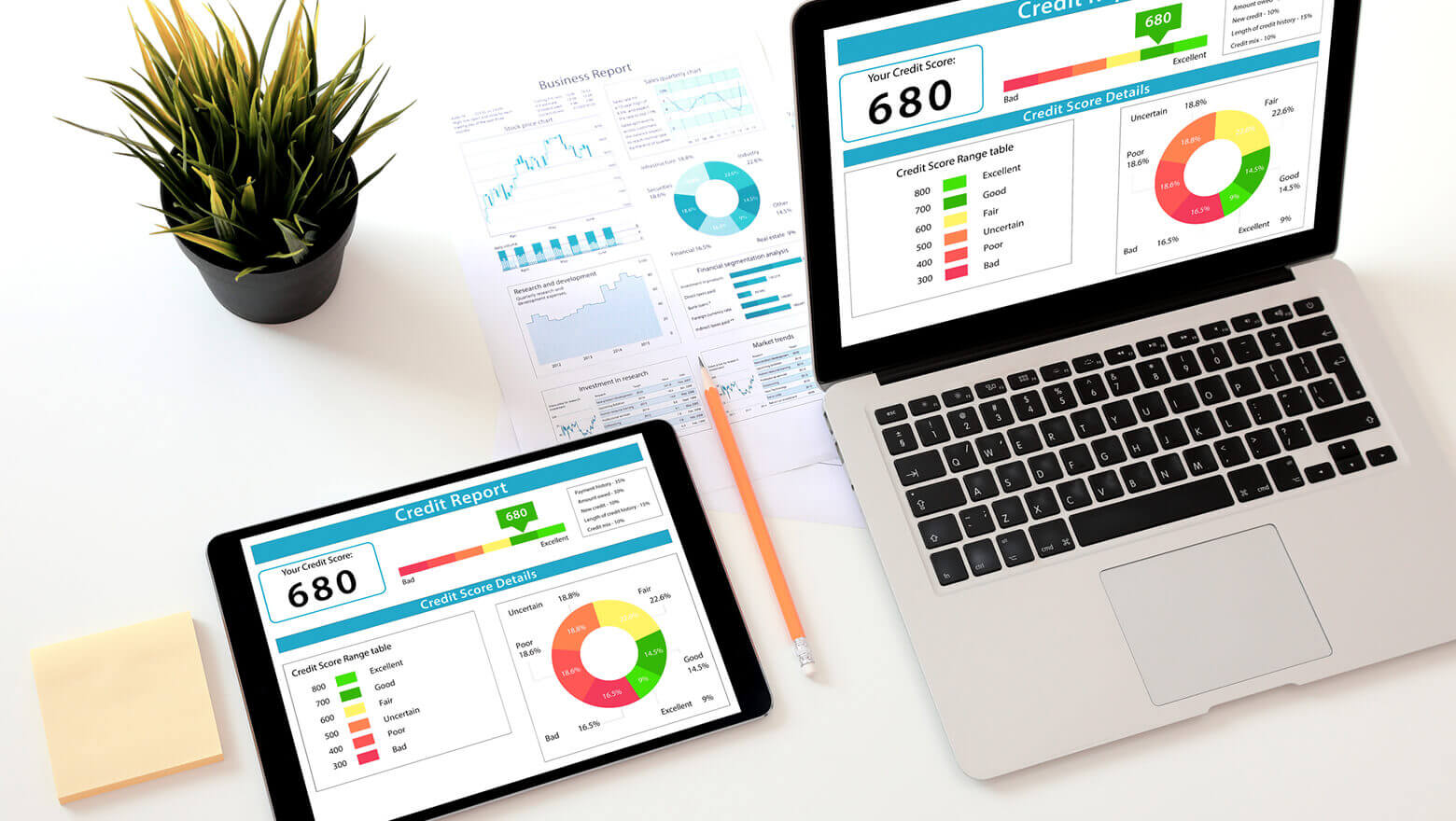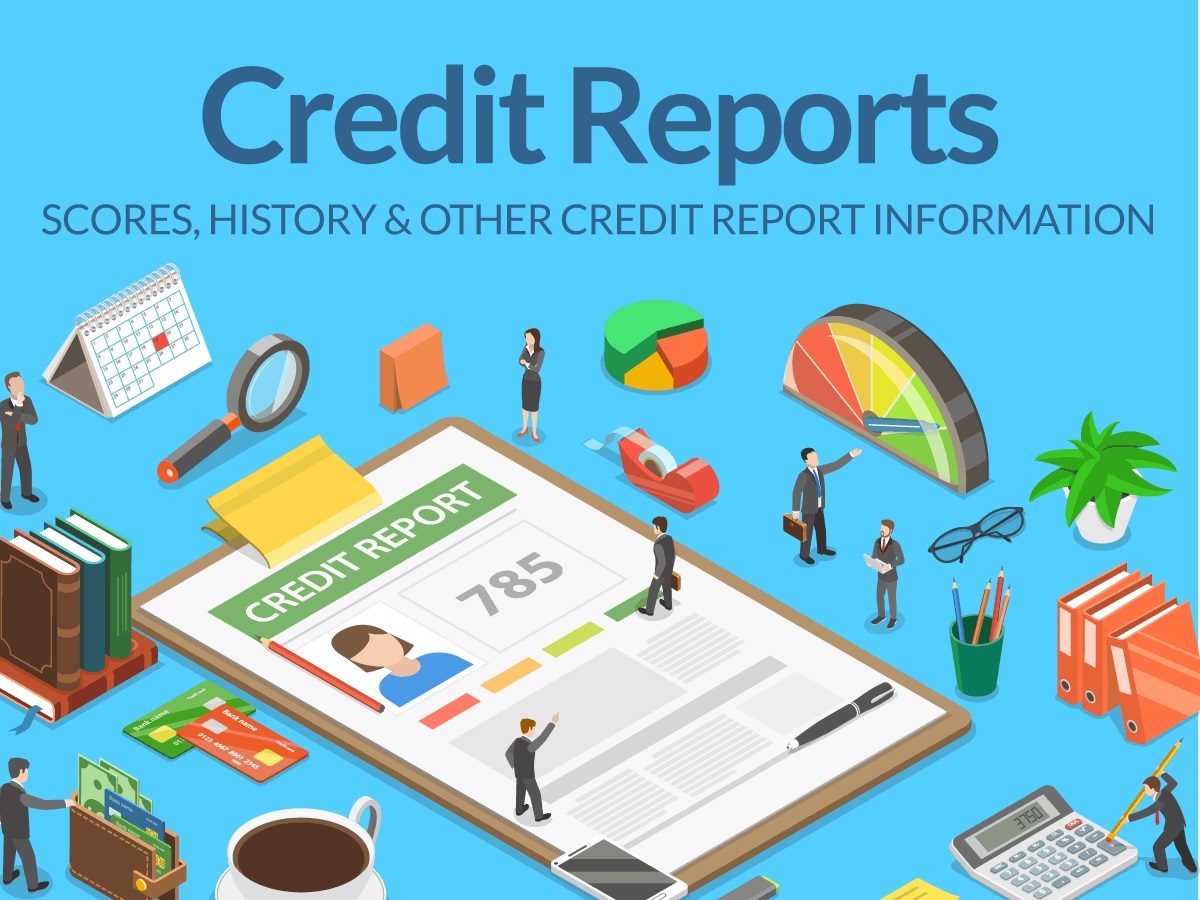

Finance
When Do Experian Update Credit Reports
Modified: February 21, 2024
Discover when Experian updates credit reports and stay on top of your finance. Stay informed about your credit status and make informed financial decisions.
(Many of the links in this article redirect to a specific reviewed product. Your purchase of these products through affiliate links helps to generate commission for LiveWell, at no extra cost. Learn more)
Table of Contents
Introduction
When it comes to personal finances, credit plays a crucial role in determining an individual’s financial health and credibility. One of the key components of maintaining good credit is regularly monitoring and updating your credit report. Among the top credit bureaus that provide credit reports is Experian. Understanding when and how Experian updates credit reports is essential for anyone seeking to stay on top of their credit profile.
Experian is one of the major credit reporting agencies that gathers and maintains financial information of individuals and businesses. They collect information from various sources such as banks, lenders, and other financial institutions. This information is then used to generate credit reports, which serve as a snapshot of an individual’s credit history and financial standing. These reports include details like credit accounts, payment history, and public records. Regular updates to credit reports are essential for ensuring accuracy and providing a real-time reflection of an individual’s creditworthiness.
Updating credit reports is a complex process that involves various factors and considerations. In this article, we will explore the factors that influence credit report updates, the frequency of these updates, Experian’s specific credit report update process, and instances where Experian may delay updates.
By understanding the intricacies of credit report updates, individuals can better manage their credit profiles, identify and rectify errors, and ensure accurate information is reflected in their credit reports. This knowledge can ultimately help them make informed financial decisions, secure favorable loan terms, and maintain a strong credit standing.
Factors that Influence Credit Report Updates
Credit report updates are influenced by several factors that play a role in ensuring the accuracy and timeliness of the information provided. These factors include:
- Creditors and Financial Institutions: The timely reporting of information by creditors and financial institutions is crucial for credit report updates. These entities are responsible for providing information about an individual’s credit accounts, loan balances, payment history, and any changes in their credit status. Timely reporting from these sources helps to ensure that the credit report reflects the most up-to-date information.
- Payment Due Dates: The timing of credit report updates can be influenced by the due dates of payments. Generally, it takes around 30-45 days for credit report updates to reflect changes in payment status. For example, if a payment is made a few days before the due date, it may not reflect in the upcoming credit report update but will likely be reflected in the subsequent update.
- Reporting Cycles: Creditors and financial institutions have their own reporting cycles, which may vary. Some institutions may report account information on a monthly basis, while others may report less frequently. These reporting cycles impact the frequency at which credit report updates occur and determine when new information is added to the report.
- Credit Bureau Processing Time: Once financial institutions report updates to the credit bureaus, there is a processing time involved in incorporating the new information into the credit report. This processing time can vary depending on the volume of updates received and the efficiency of the credit bureau’s systems and processes.
It’s important to note that credit report updates are not instantaneous and can take time to reflect accurate and updated information. Therefore, individuals should allow for sufficient time to pass before expecting changes to be reflected in their credit reports.
Understanding these factors helps individuals to manage their expectations regarding credit report updates. It’s crucial to maintain regular communication with creditors and financial institutions to ensure that they are reporting accurate and timely information. Monitoring credit accounts and staying proactive can help individuals identify any discrepancies or errors in their credit reports and take appropriate action to rectify them.
By staying aware of the factors that influence credit report updates, individuals can have a better understanding of the timing and process involved, enabling them to effectively manage their credit profiles and make informed financial decisions.
Frequency of Credit Report Updates
The frequency of credit report updates varies depending on several factors, including the credit bureau and the reporting practices of creditors and financial institutions. Generally, credit reports are updated on a monthly basis, but it’s important to note that not all updates occur simultaneously.
Most credit bureaus, including Experian, receive information from creditors and financial institutions on a regular basis. However, the exact timing and frequency of these updates can vary. Some creditors report account information to the credit bureaus every 30 days, while others may do so less frequently, such as every 45 or 60 days.
Additionally, even though creditors may report updates regularly, it may take some time for that information to be processed and reflected in the credit report. This processing time can vary depending on the volume of updates received by the credit bureau and their internal systems and processes.
Typically, individuals can expect their credit reports to be updated within 30 to 45 days after a particular account activity or change has occurred. For example, if you make a payment towards a credit card balance, it may take a few weeks for that payment to be reflected in your credit report.
It’s important to keep in mind that the frequency of credit report updates may also depend on the type of account. For revolving credit accounts like credit cards, updates may occur more frequently as new information becomes available. On the other hand, updates for installment loans, such as auto loans or mortgages, may occur on a monthly basis.
While credit reports are generally updated monthly, it’s crucial for individuals to regularly monitor their credit and be proactive in reviewing their reports. Keeping track of your own credit activity, including payments, account balances, and any changes to your personal information, can help you identify any discrepancies or potential issues. By staying vigilant and reviewing your credit report regularly, you can ensure that the information reported is accurate and up to date.
It’s worth noting that individuals can access their credit reports for free once every 12 months from each of the major credit bureaus through AnnualCreditReport.com. Monitoring services and credit monitoring apps are also available, allowing individuals to keep a closer eye on their credit reports and receive alerts for any changes or updates.
By understanding the frequency of credit report updates, individuals can set realistic expectations and take an active role in maintaining their credit health and financial well-being.
Experian’s Specific Credit Report Update Process
Experian follows a rigorous and systematic process to ensure accurate and up-to-date credit report updates. Here is an overview of Experian’s specific credit report update process:
- Data Collection: Experian collects data from a wide range of sources, including creditors, lenders, and public records. These sources provide information about an individual’s credit accounts, payment history, public records, and other relevant financial data.
- Data Verification: Once the data is collected, Experian employs extensive verification procedures to ensure the accuracy and validity of the information. This step involves cross-checking the received data with multiple sources, resolving any discrepancies or errors, and confirming that the information aligns with the individual’s credit profile.
- Data Updating: After the verification process, Experian updates the credit report with the new information. This includes adding new accounts, updating account balances, reflecting payments made, and any other changes that have occurred since the previous report. The updated information is then integrated into the individual’s credit report.
- Data Maintenance: Experian maintains the credit reports in their extensive database and ensures the security and privacy of the information. They employ robust measures to safeguard against unauthorized access, data breaches, and other potential security risks. The data is stored in a consistent and organized manner for easy retrieval and future updates.
- Refresh Cycles: Experian has specific refresh cycles during which they update credit reports. While the exact timing of these refresh cycles may vary, Experian generally updates credit reports on a monthly basis. This means that individuals can expect their credit reports to be refreshed and reflect the most recent information within 30 to 45 days after the refresh cycle.
It’s important to note that credit report updates are dependent on various factors, including the timely reporting by creditors and the processing time by Experian. As a result, updates may not be immediate and can take some time to be reflected in the credit report. Individuals should allow for sufficient time to pass before expecting changes to appear.
Experian provides individuals with access to their credit reports through their website and other authorized channels. By regularly checking their credit report, individuals can stay informed about any updates or changes, identify errors, and take appropriate steps to rectify them.
Overall, Experian’s specific credit report update process ensures that individuals have access to accurate and current credit information, enabling them to make informed financial decisions, monitor their credit health, and take necessary actions to maintain a strong credit profile.
Instances When Experian May Delay Credit Report Updates
While Experian strives to provide timely and accurate credit report updates, there may be instances where the updates are delayed. These delays can occur due to various factors and circumstances. Here are some instances when Experian may delay credit report updates:
- Delayed Reporting by Creditors: Experian relies on the timely reporting of information by creditors and financial institutions. If a creditor delays reporting updates or fails to report them altogether, it can result in a delay in updating the information on the credit report. This can happen if the creditor’s reporting cycle is longer than usual or if there are internal processing delays.
- Incomplete or Inaccurate Information: Experian ensures that the information reported by creditors is accurate and complete before updating the credit report. If there are discrepancies or missing details in the information received, Experian may need to contact the creditor for further verification or clarification. This process can cause delays in updating the credit report until the necessary information is obtained and validated.
- Technical Issues: Like any other system, Experian’s data processing systems may experience technical glitches or issues. These technical problems can disrupt the regular updating process and result in delays. Experian works diligently to address such issues and minimize their impact on the credit report update process, but occasional delays may still occur.
- Public Records Updates: Public records, such as bankruptcies, tax liens, and civil judgments, are an important component of credit reports. However, updates to public records can sometimes take longer due to administrative processes, legal requirements, or delays in receiving information from government entities. As a result, the credit report may not reflect the most current public records until the updates are received and processed by Experian.
- Volume of Updates: Experian processes a vast amount of data from numerous sources on a regular basis. During periods of high volume, such as when many creditors report updates simultaneously, there can be a backlog in processing. This can cause delays in updating credit reports as Experian works through the accumulated data and ensures its accuracy before incorporating it into the reports.
It’s important for individuals to understand that credit report updates are not instantaneous and can take time to reflect changes. Patience is key, and it’s advisable to allow at least 30 to 45 days for updates to be reflected in the credit report. Regularly monitoring the credit report and proactively communicating with creditors can help individuals stay informed about any delays and ensure that their credit information remains accurate.
While delays in credit report updates can be frustrating, it’s essential to remember that maintaining good credit requires ongoing attention and vigilance. By staying proactive and regularly reviewing the credit report, individuals can identify any inaccuracies or discrepancies and take the necessary steps to resolve them promptly.
Conclusion
Understanding when and how Experian updates credit reports is essential for individuals who want to have accurate and up-to-date credit information. While the frequency of credit report updates can vary based on factors such as reporting cycles and creditor practices, individuals can generally expect their credit reports to be updated on a monthly basis.
Experian follows a systematic process to collect, verify, and update credit information. They rely on timely reporting from creditors and financial institutions, and they prioritize accuracy and data integrity. However, there can be instances when credit report updates are delayed due to factors like delayed reporting by creditors, incomplete information, technical issues, or the volume of updates to be processed.
To stay on top of their credit health, individuals should actively monitor their credit reports and verify the information presented. Regularly reviewing credit reports can help identify any errors or discrepancies that may affect credit scores and financial decisions. By promptly addressing these issues with Experian and creditors, individuals can ensure the accuracy and integrity of their credit information.
Being knowledgeable about the credit report update process empowers individuals to manage their credit profiles effectively. It allows them to make informed financial decisions, take proactive steps in improving their creditworthiness, and detect any signs of identity theft or fraudulent activities.
In conclusion, credit report updates play a crucial role in maintaining a healthy credit profile. By understanding the factors that influence credit report updates, the frequency of updates, and Experian’s specific update process, individuals can stay informed and take control of their credit health. Regularly monitoring credit reports, addressing any discrepancies, and maintaining positive credit habits are key to building and maintaining a strong financial foundation.
Remember, your credit report is a reflection of your financial responsibility, and by staying diligent and proactive, you can ensure that your credit report accurately represents your creditworthiness.














